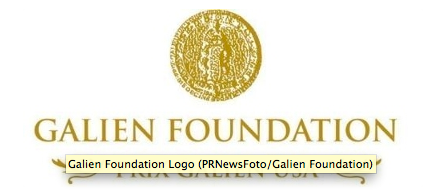Doctors Sans Borders and Sans Politics
“Don’t panic, this is the victory of the virus,” said Bernard Kouchner, co-founder of Medecins Sans Frontieres (Doctors Without Borders).
“Don’t panic, this is the victory of the virus,” said Bernard Kouchner, co-founder of Medecins Sans Frontieres (Doctors Without Borders).

The former French Foreign Minister jokingly urged the audience at American Museum of Natural History in New York City on October 28 not to rush for the exits even though he was fresh off a trip to Ebola afflicted Guinea.
Kouchner spoke about the need to keep separate humanitarian aid efforts and politics as he received the 2014 Pro Bono Humanum Award at the eighth annual Prix Galien USA Awards ceremony.
“At the beginning of the epidemic, in January, only one organization was there, taking care of these patients… In Liberia, Sierra Leone and Guinea, it was the very brave, dedicated and efficient people of doctor’s without borders,” he said. “They are patients and we have to help them,” added Kouchner.
Earlier at the Prix Galien Forum, Kouchner spoke on the group’s efforts in Africa.
The story of Ebola, “is a story of globalization, of rich versus poor”, he said. Response to Ebola by the rest of the world has been late and slow, but it is now good, Kouchner added. What is desperately needed, more so than monetary contributions, is leadership in the stricken nations.

The awards ceremony is viewable here with Kouchner’s speech coming at 36:35.
Beyond the Prescription: Pharma's Role in Digital Health Conversations
April 1st 2025Join us for an insightful conversation with Jennifer Harakal, Head of Regulatory Affairs at Canopy Life Sciences, as we unpack the evolving intersection of social media and healthcare decisions. Discover how pharmaceutical companies can navigate regulatory challenges while meaningfully engaging with consumers in digital spaces. Jennifer shares expert strategies for responsible marketing, working with influencers, and creating educational content that bridges the gap between patients and healthcare providers. A must-listen for pharma marketers looking to build trust and compliance in today's social media landscape.
Beyond the Prescription: The Role Pharma Plays in Digital Health Conversations
April 1st 2025As social media continues to influence healthcare communication, it presents both challenges and opportunities for the pharmaceutical industry. In this interview, Jennifer Harakal of Canopy Life Sciences discusses balancing compliance with effective digital engagement to build trust and facilitate meaningful healthcare conversations.